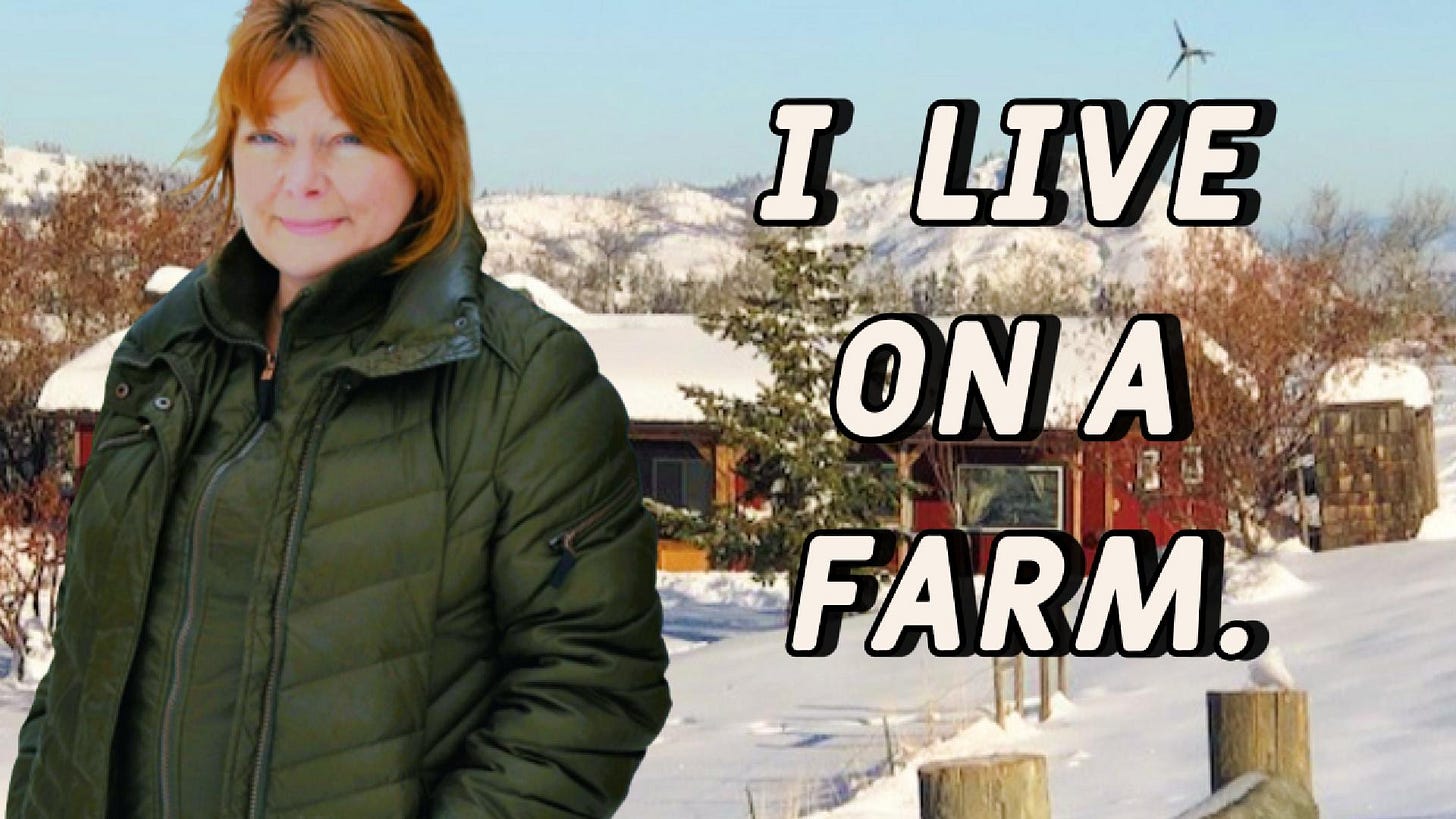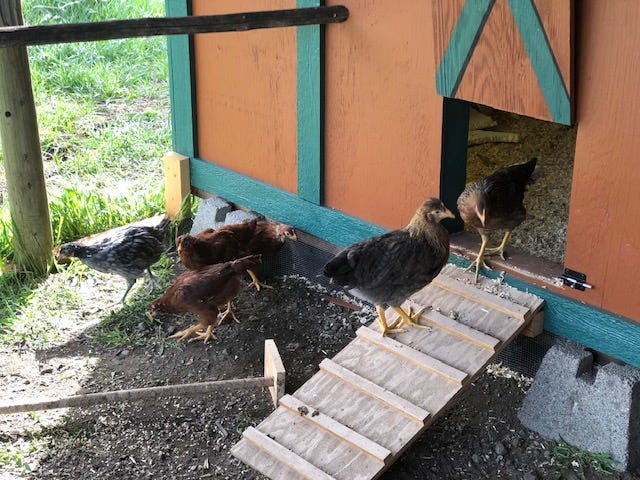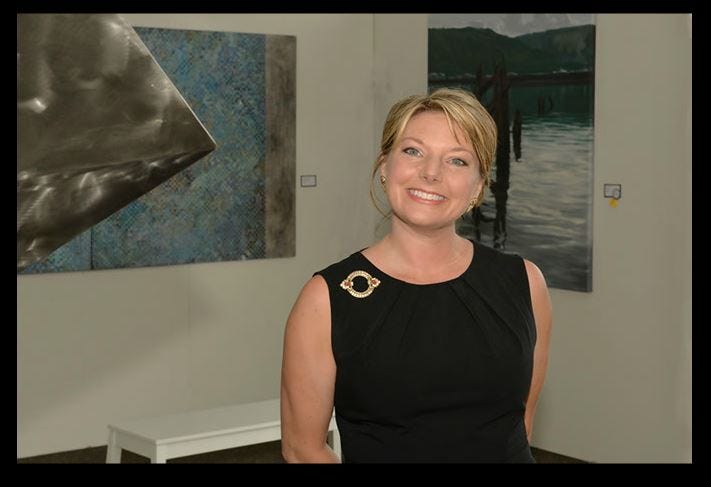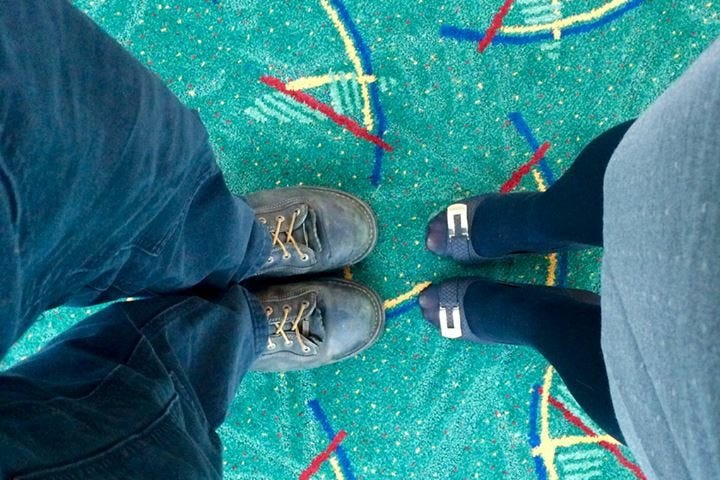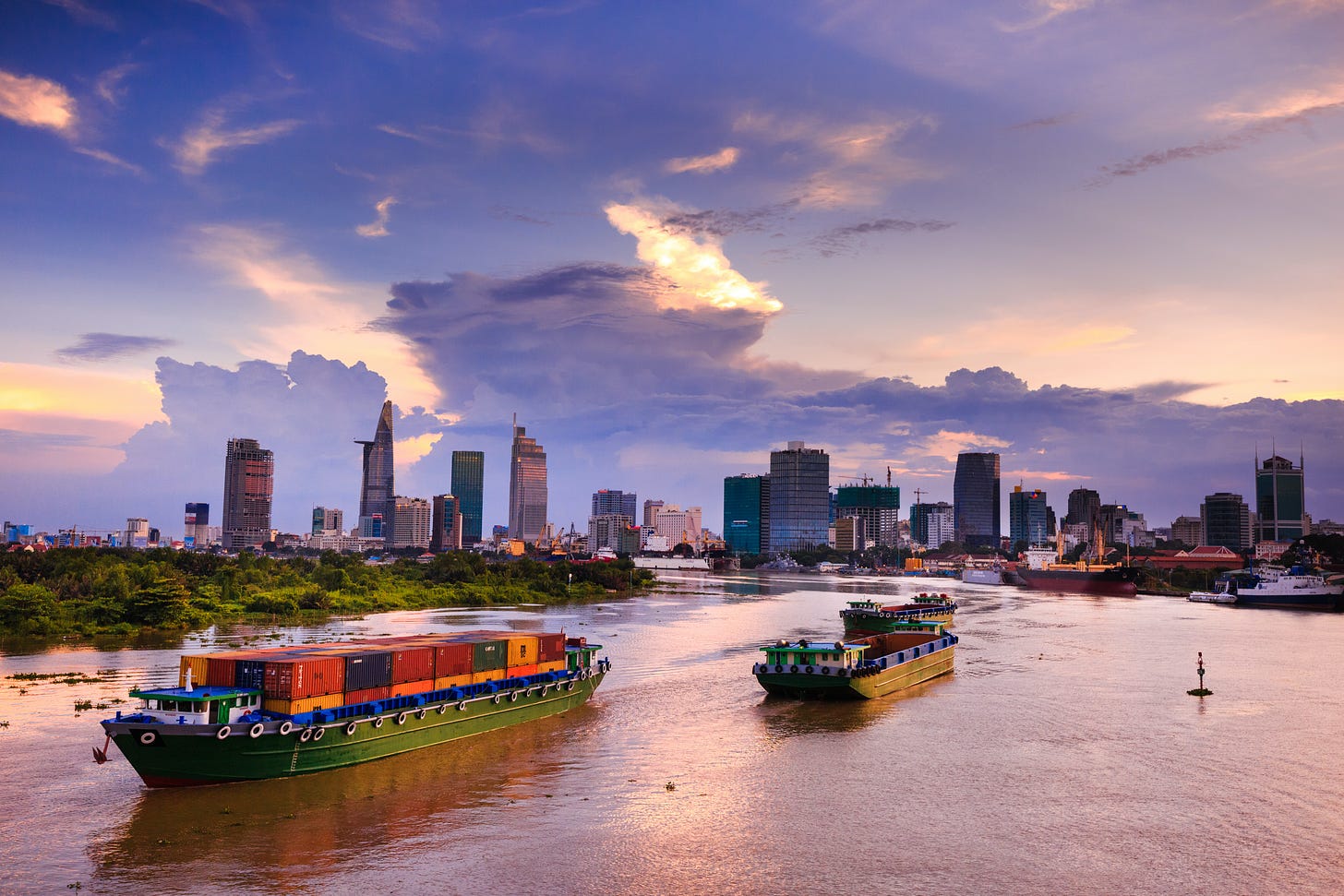I published this post about a year and a half ago… before I came to Substack!
I’m reposting it here because I just released a video on YouTube that I created based on this specific blog post: How Did I End Up Here?
Read it here, watch it there - or better yet, both. And don’t forget to SUBSCRIBE on YouTube if you want to see more of LOVE OFF GRID in action.
Thanks everyone!
I live on a farm.
Did you ever experience a moment of surprise where you find yourself, almost suddenly, in a place or situation you never anticipated? A surreal revelation, there's a sense of being suddenly teleported from one way of life to another, as if no transition existed.
That was me, yesterday.
It was morning and I let the chickens out. I stood watching them peck about and stretch their wings. Occasionally, one would clumsily take flight and then, almost in a panic, land "Greatest American Hero style" near the others. They're only 10 weeks old so they're still figuring things out, too.
Anyway, I'm standing there watching chickens and a cow bellows in the distance: "Moooo...".
And it hit me.
I live on a farm.
I never intended to live on a farm. As a child, I spent time at my grandmother's small farm during the summer. I remember sleeping with the windows open (which my parents would never allow at home), listening to the crickets sing in the dark. Waking to the rooster's crow and breathing the crisp morning air was invigorating. I recall it now and all the pleasure it brought me, but this was a buried memory until recently.
The first nights we spent here, nearly two years ago, were eerily quiet. There are no streetlights (or power lines) within at least 15 miles and the stars were breathtaking in their multiplicity. We'd lie there, holding hands in bed, listening to the quiet and our dog snoring nearby. No lights. No phones. No hum of the refrigerator or air conditioning. Just crickets.
Literally, crickets.
Our one bathroom was downstairs, so we learned to use a lantern to find it in the night. I say learn because, until you've used a lantern, you don't know the trick: you have to hold it up behind your head to see. Scrooge in his nightshirt in all those Christmas movies isn't being overly dramatic - he must have practiced and learned the trick to walking with lanterns.
Of course, I didn't always use lanterns, nor did I spend my mornings scattering chicken scratch.
I used to be fancy.
For many years, I was an art curator in a large city. I designed exhibits and served on committees. I threw catered soirees to raise money for this cause and that.
I wore Dolce and Gabbana.
Now my wardrobe is a strange mix of 4" heels I may never wear again and dusty Dryshod and Ariat boots. A green flannel shirt hangs beside a silk blouse draped gracefully on a velvet hanger in the back of the closet. A trip to Goodwill is long overdue.
John and I met at work, back when I was a curator. He was in Maintenance. Once, a coworker asked me, "What do you two have in common?" The answer was too complex for a hallway conversation but, thinking back, the short answer would have been, "Adaptivity."
You see, what my coworker didn't know is that I never really cared about glitzy shoes. Sure, they're fun, but they're just static things in a fluid world. She only saw me as "the curator", all scrubbed up and polished. She never saw me in my 20's when I was scrubbing toilets at the Hyatt or soldering cables on an assembly line. You do what you have to do. I never expected to be a widow at 27, have two boys to raise alone and be going to college at 35, but you do what you have to do. That's called adaptivity.
Adaptivity is probably the most important trait John and I share; in fact, I think it's one of the most important traits for getting through life in one piece. Sadly, though, it's becoming more uncommon with each passing generation as people identify more closely with their labels, their image, and their pronouns.
"The more you label a thing, the more limited it becomes."
Me
To be adaptive means that, while you have certain expectations about events or life in general, you know that things may not work out quite as you planned. In fact, you're prepared for that - mentally, emotionally and physically. Perhaps even more so, it's not allowing yourself to be defined by circumstances. We are not our job, our community, or even our family.
“Life is difficult. This is a great truth, one of the greatest truths. It is a great truth because once we truly see this truth, we transcend it. Once we truly know that life is difficult-once we truly understand and accept it-then life is no longer difficult. Because once it is accepted, the fact that life is difficult no longer matters.”
M. Scott Peck
We watched a couple documentaries recently that we still can't shut up complaining about. There are just so many ways to poke holes... But, wait. Let me go back: Sometimes, at the end of a hard day working outside, we just need to sink into our comfy chairs and zone out. While we don't have or want "television", we do have internet and all the choices that brings. So, we came across "Expedition-Happiness" and, later, "Minimalists" on Netflix. Mind you, I'm not recommending either documentary but, at the time, we thought, "Looks interesting. Let's try it...".
We couldn't help but notice that both documentaries seemed to have an underlying commonality: the main players seemed to suffer major emotional setbacks over, what we would consider, pretty minor events. Also, they didn't seem to have any concept that things could or would go wrong so, when events went awry, they crumbled. "This is the worst thing in the world", the young German proclaimed repeatedly throughout the first film. Mind you, he and his girlfriend took a bus "they" refurbished across Canada, into Alaska and back down the US west coast into Mexico without so much as a toolbox! Um, duh. Spoiler alert: They had issues.
"Minimalists" examined Americans' consumption habits and was written from the point of view of a 30ish year-old skateboarding hipster who lives with his girlfriend (who, by the way, is conveniently not a minimalist). He travels with his best friend to engagements on NPR and Good Morning America where they promote their book while simultaneously proclaiming the evils of buying things we don't need. Hmmm.
Showcased in the film were other utopian-dreamers living in tiny houses (in their parent's backyards? Location was never made clear...). Anyway, for one reason or another, they'd decided at 30 that life was too demanding and hollow, so they shed their possessions to couch surf and lecture everyone else.
I'm not arguing with the premise that we live in a materialistic society. Getting out and away from all the flash and distraction of civilization is essential to one's mental and emotional health. I found fault with their solution, however, that we should all live in tiny, rack 'em and stack 'em apartments in big cities and trust the system with providing our essential needs on a Just-In-Time basis.
Yes. Spoiler alert. That was their solution.
After the past two years of supply chain issues, can anyone other than me find holes in this plan?
Has it become such an antiquated notion that we should expect problems and be ready for them when they arise? And that we should be responsible for solving our problems ourselves? Here's a laugh and a great demonstration of what I'm saying. Not sure who made this video but it's hilarious. But I digress...
The common denominator of these two films was the search for happiness and the claim that happiness lies away from society and its accepted norms; yet, their solution was a total embrace of society, and an unprecedented reliance on society for one's every need. In short, a nanny state. You'll own nothing and you'll be happy. And now I see why Netflix is promoting these two films (insert eyeroll).
“Learning to let go should be learned before learning to get. Life should be touched, not strangled. You’ve got to relax, let it happen at times, and at others move forward with it.”
Ray Bradbury
I'm sure I'm going to sound like a real Grinch when I say that life isn't about happiness, but it's time for a reality check. Life is a collection of moments. Some are joyful, others just suck. It's our job to find joy, become resilient, and learn to bend.
Buddhists say that the root of all suffering is desire, or is it attachment? I say it's expectation, and maybe that's the same thing. The space between your real life and what you think you deserve is where unhappiness lives. If your mind is set on having things happen just so, you'll always find fault when things don't manifest in your proscribed way. Despite living on a bus with only two bags of possessions, if you're rigid with expectations, you're not free.
Believing that you know best is dangerous because it closes you to possibilities. Certainly, make a plan (make an exhaustive plan!) but leave room for life to happen, apart from your will. Life unfolds as it will - as God wills it, more accurately - and, often, not getting what we thought we wanted is the best thing for us.
"Be Water, My Friend.
Empty your mind.
Be formless, shapeless, like water.
You put water into a cup, it becomes the cup.
You put water into a bottle, it becomes the bottle.
You put it into a teapot, it becomes the teapot.
Now water can flow or it can crash.
Be water, my friend."Bruce Lee
Living on a farm was never consciously part of my life plan but adapting to unexpected circumstances has always been part of me. At times, I'm a curator, and then I'm the artist. Yesterday I was a baker and every day now, I'm a chicken wrangler. I'm all of these things and I'm none of them, simultaneously, because each role is only a small part of me.




